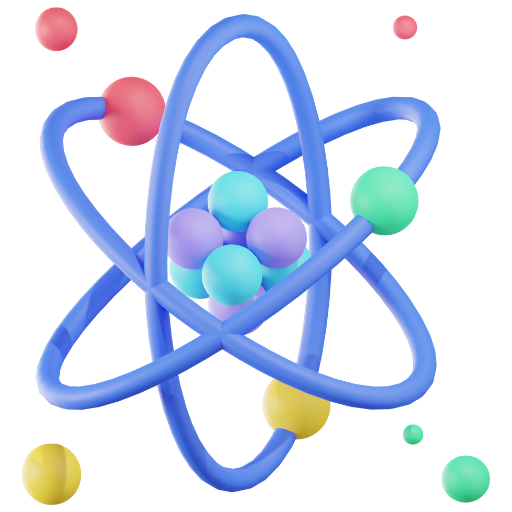The developing influence of artificial intelligence technology in healthcare is investigated in this article.
Table of Contents
- Introduction to AI in Healthcare
- Current Applications of AI in Healthcare
- The Promise and Challenges of Artificial Intelligence in Healthcare
- Future Opportunities in AI in Healthcare and Medical Technology
- Extras
Introduction to AI in Healthcare

Ever wonder how artificial intelligence is altering the medical field? Artificial intelligence in healthcare is changing our approach to patient care, treatment, and medical diagnosis. It’s a fast changing reality with major ramifications for the healthcare sector, not a futuristic concept. From evaluating medical imaging to forecasting patient outcomes and even creating customized treatment plans, artificial intelligence finds utility in many different fields.
Imagine a world in which medical technology helps to prevent disease before it ever starts, doctors can access real-time data to diagnose diseases more precisely, and patients get tailored treatment programs depending on their particular needs. This is the promise of artificial intelligence for medicine.
What is AI in Healthcare?
In healthcare, artificial intelligence refers to the application of technology derived from artificial intelligence to enhance several facets of the healthcare system. Analyzing enormous databases, seeing trends, and producing forecasts it employs algorithms, machine learning, and deep learning. By processing data far quicker and more precisely than people, these technologies offer insightful analysis that can help to enhance patient care.
How AI is Changing Healthcare
Applications of artificial intelligence in healthcare abound and include:
- Diagnosis: AI algorithms can analyze medical images like X-rays, MRIs, and CT scans to detect abnormalities and assist with diagnosis. For example, AI is being used to detect early signs of cancer in mammograms and to identify potential heart problems in EKGs. One remarkable example is IBM Watson for Oncology, a system that analyzes patient data and suggests personalized cancer treatment plans.
- Treatment Planning: AI can help doctors personalize treatment plans based on individual patient characteristics, such as age, medical history, and genetic makeup. For instance, an AI-powered system might analyze a patient’s tumor data to suggest the most effective chemotherapy regimen.
- Drug Discovery and Development: AI is being used to accelerate the discovery and development of new drugs and therapies. For example, AI is being used to identify potential drug targets and to design new drug candidates. A recent news article I read discussed how AI is being used to develop new drugs for Alzheimer’s disease, which is a significant breakthrough in this field.
- Patient Monitoring: AI-powered systems can monitor patients’ vital signs and identify potential health risks. Imagine a wearable device that uses AI to detect early signs of a heart attack or stroke. This technology could revolutionize patient care, allowing for early intervention and improved outcomes.
- Administrative Tasks: AI can automate administrative tasks such as scheduling appointments and processing insurance claims, freeing up healthcare professionals to focus on patient care.
AI in healthcare has quite bright future possibilities. We should anticipate much more creative uses of technology as it develops that change our approach to medicine and raise the general state of health worldwide. Imagine a time when artificial intelligence may enable early disease diagnosis, customizing of treatment programs, and even prevention of illness before it starts. Right now, this is the present of artificial intelligence in healthcare. It is also its future.
Should your curiosity about artificial intelligence in healthcare be piqued, I advise you to investigate the many web resources at hand. Articles, research papers, and even online courses exploring this fascinating discipline abound. It’s something worth watching since artificial intelligence has the power to transform medicine!
Current Applications of AI in Healthcare

Ever wonder how artificial intelligence (AI) can assist with your health management? Though it sounds futuristic, the concept of AI in healthcare is already a reality changing our approach to patient care, treatments, and medical diagnosis. The healthcare sector is being transformed by AI’s capacity to examine enormous volumes of health data, spot trends, and project results.
Consider artificial intelligence as a supercharged detective sorting through reams of data to find insightful analysis. It’s altering our knowledge of and approach to diseases and creating new avenues for betterment of human health.
How AI is Making a Difference in Healthcare Today
These actual case studies show how AI in healthcare is now improving things:
- Diagnosis: Imagine doctors using AI to analyze medical images, like X-rays and MRIs, for subtle signs of disease. This is already happening! AI can detect early signs of cancer in mammograms, identify potential heart problems in EKGs, and even help radiologists interpret complex scans.
- Treatment Planning: We all have unique medical histories and needs. Personalized medicine is a growing field where AI uses machine learning to tailor treatment plans to individual patients. For instance, AI can analyze a patient’s tumor data to suggest the most effective chemotherapy regimen, taking into account their age, medical history, and genetic makeup.
- Drug Discovery and Development: AI is speeding up the process of finding new drugs and therapies. It’s like having a team of scientists working tirelessly to identify potential drug targets and design new drug candidates. Researchers have even used AI to develop potential drugs for Alzheimer’s disease, which could be a game-changer in the fight against this devastating illness.
- Patient Monitoring: Have you ever heard of smartwatches or fitness trackers? These AI-powered wearable devices can monitor your heart rate, sleep patterns, and even detect early signs of a heart attack or stroke. This technology can empower patients to take control of their health and enable doctors to intervene sooner, leading to better outcomes.
- Administrative Tasks: Let’s face it, paperwork can be a real headache in healthcare. AI can streamline administrative tasks like scheduling appointments and processing insurance claims, freeing up valuable time for healthcare professionals to focus on patient care.
Looking to the Future of AI in Healthcare
The direction of artificial intelligence in healthcare is really fascinating. Imagine a time where artificial intelligence can anticipate and stop diseases before they ever start as well as diagnose them early on. With predictive analytics, whereby artificial intelligence uses data to forecast health hazards and suggest preventative actions, this is the promise.
- The Future of AI in Diagnosis: AI will become even better at analyzing medical images, helping doctors detect diseases with greater accuracy and at earlier stages. Imagine AI helping to identify a potential tumor in its early stages, giving patients a better chance of a cure.
- The Future of AI in Treatment: Personalized treatment plans will become even more precise, taking into account an individual’s unique genetics, lifestyle, and environmental factors. AI might even help us develop personalized therapies that target specific genes or proteins involved in diseases.
- The Future of AI in Patient Care: AI-powered healthcare robots might become commonplace, assisting doctors and nurses with various tasks, from dispensing medication to monitoring patient vital signs. Imagine a robot companion helping elderly patients with their daily activities and reminding them to take their medication.
There are countless possibilities. By guaranteeing better outcomes for patients, enhancing access to healthcare, and making healthcare more proactive and preventive, artificial intelligence (AI) has the ability to transform the healthcare business. The way artificial intelligence technology develops will only become more significant as it affects healthcare, so creating a better and brighter future for all.
The Promise and Challenges of Artificial Intelligence in Healthcare

Imagine a time when artificial intelligence will enable us to personalize therapies, more precisely identify ailments, and even foretell health concerns before they start. That would be incredible! Though like any great new technology, this vision of a transformed healthcare system driven by artificial intelligence is fast becoming reality and has certain difficulties.
Already, artificial intelligence is having an impact on healthcare. For instance, artificial intelligence systems are enabling doctors to more precisely and early detect cancer in mammograms. Still, significant obstacles must be overcome before we can completely utilize artificial intelligence in the medical field.
Key Challenges in Implementing Artificial Intelligence in Healthcare
Though there are still some major obstacles to overcome, artificial intelligence technology is rapidly changing healthcare. Let’s go over these challenges and talk about how we might overcome them.
- Data Privacy and Security: Artificial intelligence relies on vast amounts of patient data to learn and improve, but this data is incredibly sensitive. It includes personal information, medical records, and even genetic information. We need to be extra careful to protect this data from hackers. Imagine the consequences if someone were to gain access to your medical records! That’s why we need to ensure strong cybersecurity to protect this data and maintain trust in artificial intelligence in healthcare.
- Data Quality and Bias: Artificial intelligence systems are trained on large datasets. If this data is inaccurate or incomplete, the artificial intelligence system might make biased decisions or even misdiagnose diseases. For example, what happens if a artificial intelligence system is trained on data that doesn’t represent all patients? This is why it’s crucial to ensure that the data used to train artificial intelligence systems is accurate, complete, and diverse.
- Transparency and Explainability: Have you ever wondered how artificial intelligence systems reach their conclusions? One of the biggest challenges with artificial intelligence in healthcare is its black box nature. It can be difficult to understand how these systems arrive at their decisions. This lack of transparency poses a problem in healthcare, where trust and accountability are paramount. We need to develop artificial intelligence models that can clearly explain their decision-making processes.
- Ethical Considerations: As artificial intelligence evolves, we must carefully consider the ethical implications. For example, how do we ensure that artificial intelligence systems are used fairly and don’t perpetuate existing biases? We also need to think about how artificial intelligence might impact patient autonomy and the equitable distribution of healthcare services. Open dialogue and collaborative efforts are crucial to ensure that artificial intelligence is used ethically and responsibly.
- Regulation and Oversight: The rapidly evolving nature of artificial intelligence presents challenges for regulatory bodies. Existing regulations may not be sufficient to address the unique aspects of artificial intelligence in healthcare. We need streamlined and adaptable regulatory frameworks to foster innovation while ensuring safety and efficacy.
- Cost and Accessibility: Implementing artificial intelligence in healthcare can be expensive. We need to ensure that artificial intelligence solutions are accessible to everyone, regardless of their socioeconomic status. We need to find ways to make artificial intelligence more affordable and accessible to all patients.
Working Together to Shape the Future of Healthcare
Dealing with these issues early on will help to guarantee that artificial intelligence is applied sensibly and successfully in the healthcare sector. Healthcare professionals, researchers, technology experts, legislators, and patients taken together can help to define the direction of healthcare. More fair and efficient healthcare for all will result from our cooperation.
Future Opportunities in AI in Healthcare and Medical Technology

Imagine a time when artificial intelligence will be able to forecast your health risks before you even show symptoms, create tailored treatment regimens based on your own genetic composition, and even help doctors execute difficult operations. This future is reality we are fast approaching thanks to the transforming power of AI in Healthcare and “medical technology; it is not science fiction.
Artificial intelligence has unquestionably the power to transform the healthcare sector. Although the first transforming effects of this technology are currently under show, the future presents even more fascinating and powerful chances for artificial intelligence to enhance patient care and change the medical environment. We should anticipate amazing developments that will profoundly affect our diagnosis, treatment, and management of our health as artificial intelligence technology develops and matures.
Transforming Diagnosis and Treatment
Personalized medicine—where therapies are catered to the particular needs of every patient—is likely to be greatly advanced by artificial intelligence. Imagine a time when a doctor could use a large database of patient data—including genetic data, lifestyle choices, and environmental influences—to design a treatment plan exactly fit for every individual. More efficient therapies with less side effects resulting from this tailored approach to healthcare helps to improve patient outcomes eventually.
Consider how artificial intelligence is being applied in cancer treatment. Tools driven by artificial intelligence can examine tumor tissue of a patient and spot particular genetic abnormalities. This data can then be used to direct therapy choices and identify which therapies, for that particular patient, are most likely to be beneficial. AI is therefore enabling a new era of precision medicine whereby cancer patients receive customized treatments more likely to provide beneficial results.
Expanding Healthcare Access and Equity
The lack of fair access to quality treatment presents one of the main difficulties confronting healthcare systems all around. Particularly for underprivileged groups, “medical technology” and artificial intelligence are helping to solve this difficulty in a major proportion. For instance, AI-powered telemedicine systems are removing geographical restrictions and increasing access to healthcare treatments for people living in rural or distant locations. Imagine a patient living in a far-off village who, thanks to video calls with a specialist in a big city, can now receive professional treatment not possible elsewhere.
Furthermore helping underprivileged groups to have access to healthcare is artificial intelligence. AI systems can be applied, for example, to create language translating tools meant to close communication gaps between patients speaking many languages and healthcare professionals. Better knowledge and communication resulting from this will help to enhance patient care and results. Tools driven by artificial intelligence can also help to spot and correct health inequalities disproportionately impacting specific groups.
AI in healthcare is about enhancing everyone’s quality of life everywhere, not only about technical developments. Using medical technology and artificial intelligence will help us to build a more fair, efficient healthcare system accessible to all.
Extras
Understanding how the fundamental technology drives developments in healthcare is crucial on our path through the AI advances. Explore “How ChatGPT Works: Unveiling the Technology Behind AI Models” which clarifies the mechanics of artificial intelligence and its uses in many spheres, to delve more into this subject.
“The impact of artificial intelligence in medicine on the future role of the physician” from the National Library of Medicine provides a thorough view of how AI could change healthcare and what it means for doctors in the years to come. For more reading on the transforming power of artificial intelligence in medicine.












1 thought on “The Future of AI in Healthcare”